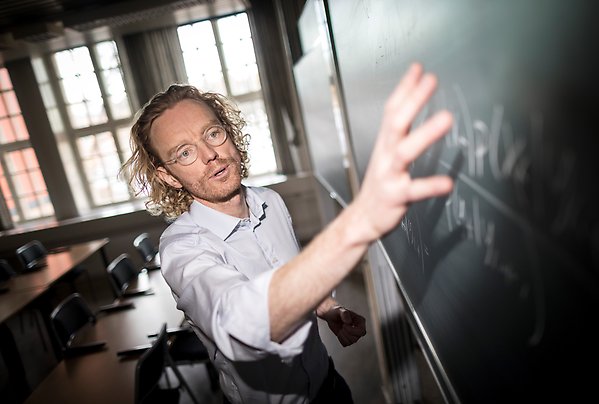Artificial intelligence: the ‘thinking’ machines of the future

Behind every self-driving car, self-learning robot or smart building, a multitude of advanced algorithms hide, steering learning and decisions. Researchers at Uppsala University are hard at work building some of the mathematical models that form the backbone of automated systems. The models they construct help machines to take independent and reliable decisions.
Machine learning builds on a combination of mathematics and programming and means that machines learn to manage different kinds of tasks without having been programmed for that specific task. Machine learning is a rapidly growing field of technology and is at the heart of what is known as artificial intelligence (AI). The machines and computers are not intelligent in themselves – they learn thanks to algorithms that rapidly identify complex patterns in large quantities of data.
Machine learning makes it possible to develop smart engineering systems that can be of enormous benefit to individual people and society, if we are wise enough to use them in the right way. Examples in the area of traffic safety include cruise control and pedestrian warning systems, as well as the development of self-driving cars designed to reduce the number of traffic accidents. There are also medical applications, such as systems for diagnosing heart diseases and the development of new radiation treatments for cancer. Research on AI and machine learning can also give us more knowledge about the human brain and consciousness, and perhaps contribute to better ways of treating brain diseases.
In 2020 AI4Research was launched, an initiative that gathers researchers from all disciplinary domains at Uppsala University to strengthen, invigorate and advance research in artificial intelligence and machine learning from a wide range of knowledge backgrounds and perspectives.
Machine learning is a rapidly expanding area of research in which Uppsala University has come a long way. However, to become an international leader in the field, the research environment needs to be strengthened. Our aim is to focus on the future development of medical applications – an area that has great potential and social benefit.
“Our goal is to move Sweden’s position in machine learning forward and to help ensure that the machines of the future are used in the service of humankind.”
Thomas Schön, Professor of Control Engineering, Beijer Professor of Artificial Intelligence
